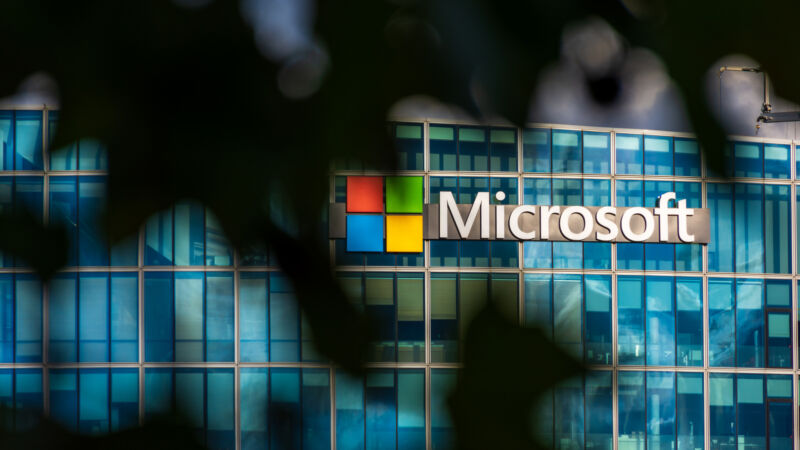
In mid-June 2019, Microsoft co-founder Bill Gates and CEO Satya Nadella received a rude awakening in an email warning that Google had officially gotten too far ahead on AI and that Microsoft may never catch up without investing in OpenAI.
With the subject line “Thoughts on OpenAI,” the email came from Microsoft’s chief technology officer, Kevin Scott, who is also the company’s executive vice president of AI. In it, Scott said that he was “very, very worried” that he had made “a mistake” by dismissing Google’s initial AI efforts as a “game-playing stunt.”
It turned out, Scott suggested, that instead of goofing around, Google had been building critical AI infrastructure that was already paying off, according to a competitive analysis of Google’s products that Scott said showed that Google was competing even more effectively in search. Scott realized that while Google was already moving on to production for “larger scale, more interesting” AI models, it might take Microsoft “multiple years” before it could even attempt to compete with Google.
As just one example, Scott warned, “their auto-complete in Gmail, which is especially useful in the mobile app, is getting scarily good.”
Microsoft had tried to keep this internal email hidden, but late Tuesday it was made public as part of the US Justice Department’s antitrust trial over Google’s alleged search monopoly. The email was initially sealed because Microsoft argued that it contained confidential business information, but The New York Times intervened to get it unsealed, arguing that Microsoft’s privacy interests did not outweigh the need for public disclosure.
In an order unsealing the email among other documents requested by The Times, US District Judge Amit Mehta allowed to be redacted some of the “sensitive statements in the email concerning Microsoft’s business strategies that weigh against disclosure”—which included basically all of Scott’s “thoughts on OpenAI.” But other statements “should be disclosed because they shed light on Google’s defense concerning relative investments by Google and Microsoft in search,” Mehta wrote.
At the trial, Google sought to convince Mehta that Microsoft, for example, had failed to significantly invest in mobile early on, giving Google a competitive advantage in mobile search that it still enjoys today. Scott’s email seems to suggest that Microsoft was similarly dragging its feet on investing in AI until Scott’s wakeup call.
Nadella’s response to the email was immediate. He promptly forwarded the email to Microsoft’s chief financial officer, Amy Hood, on the same day that he received it. Scott’s “very good email,” Nadella told Hood, explained “why I want us to do this.” By “this,” Nadella presumably meant exploring investment opportunities in OpenAI.
Mere weeks later, Microsoft had invested $1 billion into OpenAI, and there have been billions more invested since through an extended partnership agreement. In 2024, the two companies’ finances appeared so intertwined that the European Union suspected Microsoft was quietly controlling OpenAI and began investigating whether the companies still operate independently. Ultimately, the EU dismissed the probe, deciding that Microsoft’s $13 billion in investments did not amount to an acquisition, Reuters reported.
Officially, Microsoft has said that its OpenAI partnership was formed “to accelerate AI breakthroughs to ensure these benefits are broadly shared with the world”—not to keep up with Google.
But at the Google trial, Nadella testified about the email, saying that partnering with companies like OpenAI ensured that Microsoft could continue innovating in search, as well as in other Microsoft services.
On the stand, Nadella also admitted that he had overhyped AI-powered Bing as potentially shaking up the search market, backing up the DOJ by testifying that in Silicon Valley, Internet search is “the biggest no-fly zone.” Even after partnering with OpenAI, Nadella said that for Microsoft to compete with Google in search, there are “limits to how much artificial intelligence can reshape the market as it exists today.”
During the Google trial, the DOJ argued that Google’s alleged search market dominance had hindered OpenAI’s efforts to innovate, too. “OpenAI’s ChatGPT and other innovations may have been released years ago if Google hadn’t monopolized the search market,” the DOJ argued, according to a Bloomberg report.
Closing arguments in the Google trial start tomorrow, with two days of final remarks scheduled, during which Mehta will have ample opportunity to ask lawyers on both sides the rest of his biggest remaining questions.
It’s somewhat obvious what Google will argue. Google has spent years defending its search business as competing on the merits—essentially arguing that Google dominates search simply because it’s the best search engine.
Yesterday, the US district court also unsealed Google’s proposed legal conclusions, which suggest that Mehta should reject all of the DOJ’s monopoly claims, partly due to the government’s allegedly “fatally flawed” market definitions. Throughout the trial, Google has maintained that the US government has failed to show that Google has a monopoly in any market.
According to Google, even its allegedly anticompetitive default browser agreement with Apple—which Mehta deemed the “heart” of the DOJ’s monopoly case—is not proof of monopoly powers. Rather, Google insisted, default browser agreements benefit competition by providing another avenue through which its rivals can compete.
The DOJ hopes to prove Google wrong, arguing that Google has gone to great lengths to block rivals from default placements and hide evidence of its alleged monopoly—including training employees to avoid using words that monopolists use.
Mehta has not yet disclosed when to expect his ruling, but it could come late this summer or early fall, AP News reported.
If Google loses, the search giant may be forced to change its business practices or potentially even break up its business. Nobody knows what that would entail, but when the trial started, a coalition of 20 civil society and advocacy groups recommended some potentially drastic remedies, including the “separation of various Google products from parent company Alphabet, including breakouts of Google Chrome, Android, Waze, or Google’s artificial intelligence lab Deepmind.”
